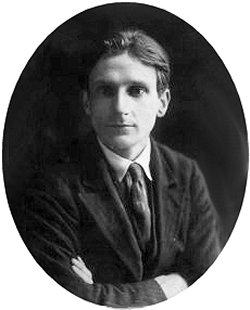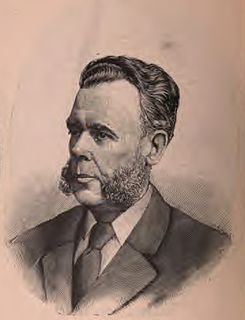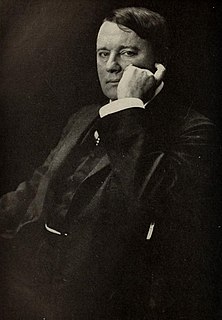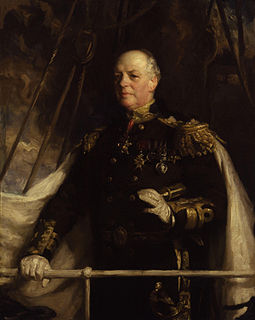Related Research Articles

Edmund Charles Blunden was an English poet, author, and critic. Like his friend Siegfried Sassoon, he wrote of his experiences in World War I in both verse and prose. For most of his career, Blunden was also a reviewer for English publications and an academic in Tokyo and later Hong Kong. He ended his career as Professor of Poetry at the University of Oxford. He was nominated for the Nobel Prize in Literature six times.
Henry Watson Fowler was an English schoolmaster, lexicographer and commentator on the usage of the English language. He is notable for both A Dictionary of Modern English Usage and his work on the Concise Oxford Dictionary, and was described by The Times as "a lexicographical genius".

Sir Frederick Wolff Ogilvie FRSE was a British broadcasting executive and university administrator, who was Director-General of the BBC from 19 July 1938 to 26 January 1942, and was succeeded by joint Directors-General Cecil Graves and Robert Foot. He also served as Vice-Chancellor of Queen's University Belfast from 1934 to 1938. He was knighted by King George VI on 10 June 1942.

Field Marshal Frederick Sleigh Roberts, 1st Earl Roberts, was a British Victorian era general who became one of the most successful British military commanders of his time. Born in India to an Anglo-Irish family, Roberts joined the East India Company Army and served as a young officer in the Indian Rebellion during which he was awarded the Victoria Cross for gallantry. He was then transferred to the British Army and fought in the Expedition to Abyssinia and the Second Anglo-Afghan War, in which his exploits earned him widespread fame. Roberts would go on to serve as the Commander-in-Chief, India before leading British Forces for a year during the Second Boer War. He also became the last Commander-in-Chief of the Forces before the post was abolished in 1904.
Events from the year 1914 in Ireland.
Frederick Samuel Boas, (1862–1957) was an English scholar of early modern drama.

Henry Page Croft, 1st Baron Croft was a decorated British soldier and Conservative Party politician.

Lawrence Goldman is an English historian and the former director of the Institute of Historical Research. A former editor of the Oxford Dictionary of National Biography, he has a PhD from the University of Cambridge. He is a fellow of the Royal Historical Society.

John Harold Hewitt, who was born in Belfast, Ireland, Now Northern Ireland(1921).He was perhaps the most significant Belfast poet to emerge before the 1960s generation of Northern Irish poets that included Seamus Heaney, Derek Mahon and Michael Longley. He was appointed the first writer-in-residence at Queen's University Belfast in 1976. His collections include The Day of the Corncrake (1969) and Out of My Time: Poems 1969 to 1974 (1974). He was also made a Freeman of the City of Belfast in 1983, and was awarded honorary doctorates by the University of Ulster and Queen's University Belfast.
The Westminster Gazette was an influential Liberal newspaper based in London. It was known for publishing sketches and short stories, including early works by Raymond Chandler, Anthony Hope, D. H. Lawrence, Katherine Mansfield, and Saki, and travel writing by Rupert Brooke. One of its editors was caricaturist and political cartoonist Francis Carruthers Gould. The paper was dubbed the "pea-green incorruptible" – Prime Minister William Ewart Gladstone having personally approved its green colour.

Henry Joseph Wilson was a British farmer, industrialist and Liberal Party politician.

Alfred Charles William Harmsworth, 1st Viscount Northcliffe, was a British newspaper and publishing magnate. As owner of the Daily Mail and the Daily Mirror, he was an early developer of popular journalism, and he exercised vast influence over British popular opinion during the Edwardian era. Lord Beaverbrook said he was "the greatest figure who ever strode down Fleet Street." About the beginning of the 20th century there were increasing attempts to develop popular journalism intended for the working class and tending to emphasize sensational topics. Harmsworth was the main innovator.
Henry William Carless Davis was a British historian, editor of the Dictionary of National Biography, and Oxford Regius Professor of Modern History.
Charles à Court Repington,, , known until 1903 as Charles à Court, was an English soldier, who went on to have a second career as an influential war correspondent during the First World War. He is also credited with coining the term 'First World War' and one of the first to use the term 'world war' in general.

Henry Hamilton Fyfe was a British journalist and writer who was editor of both the newspapers the Daily Mirror and the Daily Herald.
Eleanor Graham was a book editor and children's book author.

John Alfred Spender CH was a British journalist and author. He also edited the London newspaper The Westminster Gazette from 1896 to 1922.
Thomas Macknight was an Anglo-Irish newspaper editor, biographer and publisher. He was the originator of the Two Nations Theory in 1896, which argues that the Ulster Protestants are a distinct Irish nation.

Arthur James Mason was an English clergyman, theologian and classical scholar. He was Lady Margaret's Professor of Divinity, Master of Pembroke College, Cambridge, and Vice-Chancellor of the University of Cambridge.

The Imperial Maritime League was a British pressure group founded on 27 January 1908 as a breakaway from the Navy League in order to campaign for a larger navy. It focused on the media, linking editors with right-wing naval officers in order to challenge the Unionist government, the Admiralty, and the established Navy League as not aggressive enough toward Germany.
References
- ↑ Morris, A. J. A.; Explore the British Library
- ↑ A. J. A. Morris, The Scaremongers. The Advocacy of War and Rearmament 1896-1914 (London: Routledge & Kegan Paul, 1984) backflap.
- ↑ "Search results: Contributor A J A Morris". Oxford Dictionary of National Biography. Oxford University Press. Retrieved 16 May 2019.